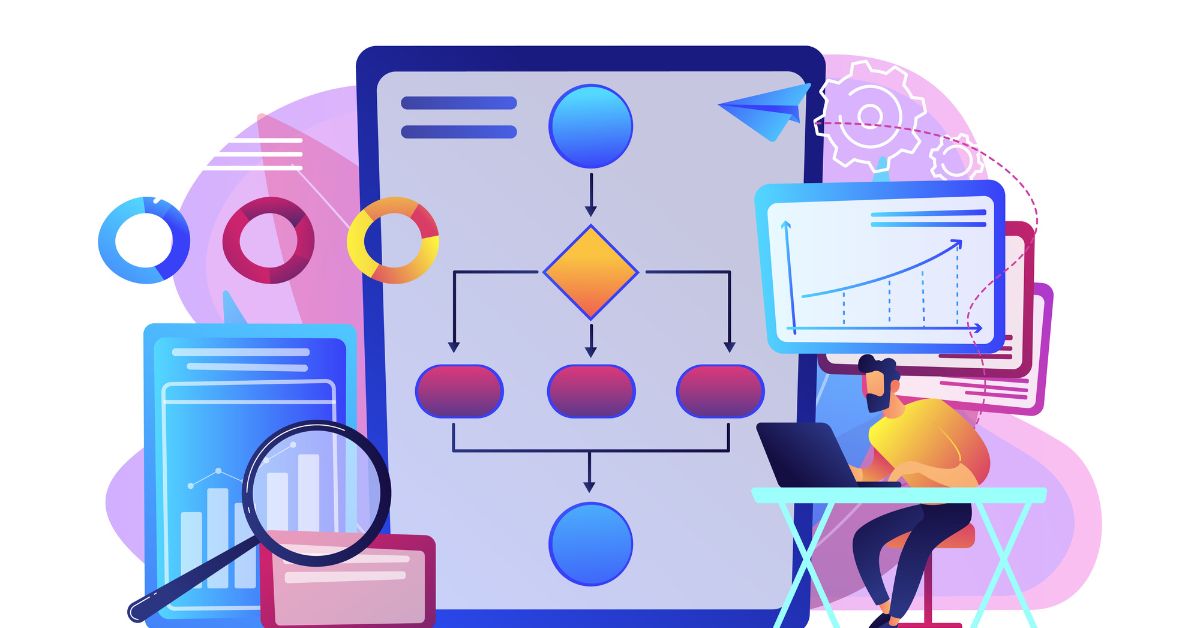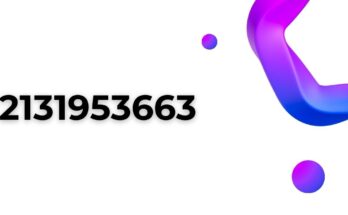Welcome to our comprehensive guide on choosing the best data orchestration software for your business! In today’s fast-paced digital landscape, where data is king, it has become crucial for companies of all sizes to manage and leverage their data assets effectively. This is where the use of data orchestration is necessary.
Data orchestration refers to collecting, organizing, and integrating various types of data from different sources across an organization. It allows businesses to streamline their operations, make informed decisions, and gain a competitive edge in the market. However, selecting the right data orchestration software can, with so many available options, take time and effort.
But fear not! This blog post will guide you through the key factors to consider when choosing a data orchestration software that fits your unique business needs. We will also explore the top features that differentiate exceptional software from mediocre ones. And if you’re wondering about cost-effectiveness or alternative options – we’ve got you covered!
So grab a cup of coffee (or tea!), and let’s dive deep into the world of data orchestration software – helping you unlock its true potential for your business success!
Contents
- 1 Understanding Data Orchestration and its Importance for Businesses
- 2 Key Factors to Consider When Choosing a Data Orchestration Software
- 3 Top Features of the Best Data Orchestration Software
- 4 Cost of Data Orchestration Software – Is it Worth It?
- 5 Alternatives to Data Orchestration Software
- 6 Conclusion:
Understanding Data Orchestration and its Importance for Businesses
In today’s data-driven world, businesses are inundated with vast amounts of information from various sources and formats. This data can be a goldmine if effectively harnessed, but it can also be overwhelming to manage without the right tools. That’s where data orchestration comes into play.
Data orchestration combines disparate datasets from multiple sources and organizes them for seamless integration and analysis. It consolidates data from various systems, such as customer relationship management (CRM) platforms, marketing automation tools, and social media channels.
The importance of data orchestration must be balanced. You gain valuable insights that drive informed decision-making by centralizing all your business-critical information into one cohesive system. With a comprehensive view of your data landscape, you can identify patterns, trends, and correlations that would otherwise go unnoticed.
Moreover, effective data orchestration enables enhanced collaboration across teams within an organization. Access to the same up-to-date information through a centralized platform or dashboard fosters better communication and alignment towards common goals.
Additionally, by automating the process of collecting and integrating diverse datasets through a robust data orchestration software solution,businesses save time and resources while reducing human errors in manually handling large volumes of data.
Furthermore,Data orchestration empowers businesses to leverage emerging technologies like artificial intelligence (AI) or machine learning (ML). These advanced technologies rely heavily on quality inputs – clean,accurate,and well-organizeddata – which is precisely what proper
Data orchestration provides.Through AI/ML-powered analytics capabilities,companies can uncover hidden insights,predict future outcomes,and optimize their operations for maximum efficiency.
Key Factors to Consider When Choosing a Data Orchestration Software
When it comes to choosing the best data orchestration software for your business, there are several key factors that you should consider. These factors will help you select a solution that aligns with your needs and goals.
First and foremost, it is essential to assess the scalability of the data orchestration software. As your business grows, so too will your data requirements. Therefore, choosing software that can handle increasing volumes of data without sacrificing performance or efficiency is crucial.
Another factor to consider is the software’s ease of use and user interface. Your team members will interact with this tool regularly, so they must find it intuitive and easy to navigate. A complex or clunky interface can lead to frustration and decreased productivity.
Integration capabilities are also vital when evaluating potential data orchestration solutions. You’ll want software seamlessly integrating with your existing systems and tools, such as CRM platforms or marketing automation software. This integration ensures smooth workflows and eliminates duplicate efforts.
Security is another critical consideration in today’s digital landscape. Look for features such as encryption protocols, access controls, and audit logs to safeguard sensitive information while complying with relevant regulations like GDPR or CCPA.
Remember customer support when selecting a data orchestration software provider. It’s essential to choose a vendor who offers responsive support channels like live chat or phone assistance for any technical issues or questions that may arise during implementation or day-to-day usage.
By carefully considering these key factors – scalability, usability, integration capabilities, security features, and customer support – you’ll be well on your way towards selecting the best data orchestration software for your business’s unique needs.
Top Features of the Best Data Orchestration Software
When it comes to choosing the best data orchestration software for your business, there are several key features that you should be on the lookout for. These features can significantly affect how effectively and efficiently your company manages its data.
- One important feature to consider is scalability. The best data orchestration software can handle large volumes of data without compromising performance or stability. This is crucial as your business grows and generates more and more data.
- Another essential feature is flexibility. Your chosen software should allow you to easily integrate with various systems and platforms, ensuring seamless connectivity across your organization’s infrastructure. This flexibility will enable you to adapt and evolve as technology advances and new tools emerge.
- Data security is also paramount when selecting a data orchestration software solution. Look for robust security measures such as encryption, access controls, and monitoring capabilities to protect sensitive information from unauthorized access or breaches.
- In addition, automation capabilities are highly desirable in modern data orchestration software. Automation streamlines processes reduces manual errors and frees up valuable time for your team members to focus on higher-value tasks.
- Furthermore, real-time analytics and reporting functionalities enable quick decision-making based on accurate insights from your data streams. This empowers businesses to stay agile in today’s fast-paced digital landscape.
- Ease of use must be considered when evaluating different options available in the market. The best data orchestration software should have an intuitive user interface that simplifies complex workflows while providing advanced functionality for expert users.
Considering these top features will help you choose the right data orchestration software explicitly tailored to meet your business needs. Remember that every company has unique requirements; therefore, it’s crucial to carefully evaluate each potential solution before deciding.
Cost of Data Orchestration Software – Is it Worth It?
One of the critical factors to consider when choosing a data orchestration software for your business is the cost. After all, you want to ensure that you are getting value for your money and that the investment will bring positive returns regarding efficiency and productivity.
Data orchestration software can range in price depending on functionality, scalability, and vendor reputation. It’s essential to evaluate these aspects before making a decision.
While data orchestration software may seem expensive at first glance, it’s essential to consider the potential benefits it can provide. By automating manual processes and streamlining data workflows, businesses can save time and resources, leading to increased productivity and cost savings in the long run.
Additionally, data orchestration software can improve data accuracy by reducing errors caused by manual entry or processing. This enhanced accuracy can lead to better decision-making based on reliable insights derived from clean and consistent data.
Moreover, investing in a high-quality data orchestration solution can help businesses comply with regulations such as GDPR or CCPA. Non-compliance penalties can be costly; robust software handling sensitive information is invaluable.
Alternatives to Data Orchestration Software
When managing and organizing your business data, there are several alternatives to consider if you need more time to be ready to invest in dedicated data orchestration software. While these options may offer a different level of sophistication than a specialized tool, they can still help streamline your data workflows and improve efficiency.
One alternative is to use a combination of spreadsheets and manual processes. This approach requires more manual effort but can be effective for smaller businesses with limited budgets. Using spreadsheets to track and organize your data, you can create custom workflows that suit your needs.
Another option is to leverage existing tools within your current software stack. Many customer relationship management (CRM) systems, project management platforms, and other business applications offer basic data organization features. Utilizing these built-in capabilities can minimize costs while still achieving some level of data orchestration.
Cloud storage solutions like Google Drive or Dropbox can store and share files across teams. While they may lack the advanced automation features of dedicated data orchestration software, they can still efficiently centralize your company’s information.
If you have some technical expertise, open-source tools could also be worth exploring. These free software options allow for customization according to your unique requirements but require more time investment in setup and maintenance.
Choosing an alternative solution depends on factors such as budget constraints, scalability needs, existing technology infrastructure, and level of technical expertise available within the organization. It’s important to carefully evaluate each option against your requirements before deciding.
Conclusion:
Choosing the right data orchestration software is a crucial decision that can significantly impact your business operations and overall success. By understanding data orchestration and its importance, you can better evaluate and select the best software solution.
When considering different options, consider critical factors such as scalability, flexibility, ease of use, integration capabilities, and security. These factors will help you determine which software aligns best with your business goals and requirements.
Additionally, consider the top features offered by data orchestration software solutions. Look for tools that provide comprehensive data management capabilities such as data integration, transformation, cleansing, enrichment, validation, and governance. The ability to automate workflows and streamline processes should also be prioritized.
While cost is an important consideration when choosing any software solution, the value it brings to your business should also be weighed carefully. High-quality data orchestration software may require a higher upfront investment. Still, it can lead to long-term benefits, such as improved efficiency, cost savings, and enhanced decision-making based on accurate insights.
It’s worth noting that there are alternatives to full-fledged data orchestration software, such as open-source platforms or custom-built solutions.
However, before going down these paths, it’s essential to assess whether they meet all your specific needs or if they come with limitations regarding support, maintenance, and future updates.



